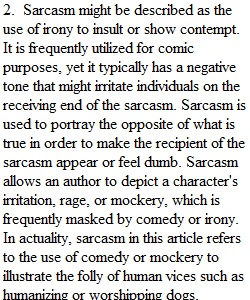


Q Purpose This assignment is intended to help you learn to do the following: • Critically read and reflect on a short essay. • Organize and write a response to a reading. Overview Critical reading is an essential skill for college students. As you read this week's essay, "The Dog Delusion" by April Pedersen, take note of how she organizes her ideas and supports her essay's claim. Be prepared to discuss the reading and your reaction to it with your instructor and classmates in the Module 2 class meeting. By Sunday of this week, post a brief response to one of the Questions for Consideration, which appear at the end of the essay. Action Items 1. Read the essay "The Dog Delusion" in Part 6 of the textbook (type the essay title into the ebook search tool to quickly find the reading). 2. After you have read the essay, write a brief response to one of the Questions for Consideration. Please write out the question that you are responding to before your response. 3. After you have posted your response, be sure to look over your classmates' responses, and be prepared to discuss the essay during the next class meeting. Grading Criteria Read the assignment rubric to understand how your work will be graded.
View Related Questions